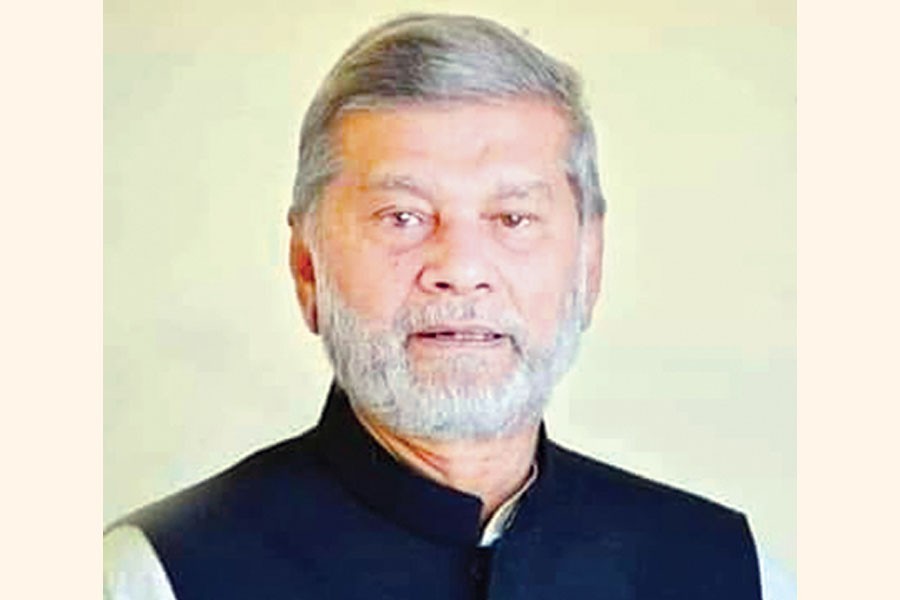Disagreeing with a recent survey that showed upper poverty rate reaching 42 per cent in the country in December 2020, Planning Minister M A Mannan on Sunday said current poverty rate might be within 20-22 per cent.
"Poverty rate may have reached nearly 45 per cent during April and May, when lockdown was imposed due to the pandemic, but it eventually halved in later months with reopening of economic activities."
He also said the country's economy has almost returned to its previous position in recent months. So, the findings of the survey should be reviewed.
The minister said these while responding to questions from reporters following a shadow parliament debate on "Government's Efforts to Deal with Pandemic Shock on Industrial Sector."
The programme was organised by Debate for Democracy at Bangladesh Film Development Corporation (BFDC) auditorium at Tejgaon in the city, where Mr Mannan was present as the chief guest.
The survey, conducted by South Asian Network on Economic Modeling (SANEM), found that upper poverty rate in the country almost doubled to 42 per cent in December 2020 from 21.6 per cent in 2018 as an aftermath of the Covid-19 pandemic.
It also showed that lower or extreme poverty rate increased in the meantime to 28.5 per cent in 2020 from 9.4 per cent in 2018.
Referring to the findings of the survey, the planning minister opined that the figures might represent the situation during the first few months of the pandemic, when economic activities came to a standstill.
"Economy has returned to its own track in recent months, and with such development, I think the rate of poverty has gradually come down to 20-22 per cent," he added.
Responding to another query about alleged irregularities in disbursing cash assistance to poor people via mobile financial services (MFS), Mr Mannan said it was a huge task to distribute money in the shortest possible time among a large number of people.
The government provided Tk 2,500 to each of the 5.0 million distressed families via MFS, and it cannot be denied that there was some mismatch in the list of beneficiaries due to hurriedness.
But the authority concerned has taken actions against such acts, he noted while delivering the chief guest's speech in the programme.
The planning minister acknowledged that all the funds disbursed under the stimulus package were not well utilised, as in many cases, marginalised people could not be reached properly.
However, it is not possible to find a solution that can address all sorts of problems, he concluded.
Speaking at the programme, Debate for Democracy Chairman Hassan Ahamed Chowdhury Kiron said high concentration of fund disbursement under the stimulus package to ready-made garment (RMG) sector may deprive other export-oriented sectors.
Citing the findings of a research by the World Bank, he said some 74 per cent of the entrepreneurs in Small and Medium Enterprise (SME) sector do not have clear concept about getting support from the stimulus package announced from them.
If the small businesses do not get loans in easy terms under the stimulus package, it will be hard for many entrepreneurs to recover from the pandemic-induced losses.
Mr Kiron also urged the central bank to prepare an interim report on fund usage by the companies that received loans at minimal interest rates under various stimulus packages.
In the debate, Dhaka Commerce College team represented the government, and World University of Bangladesh team represented the opposition. The opposition won the contest.


